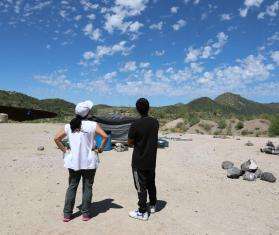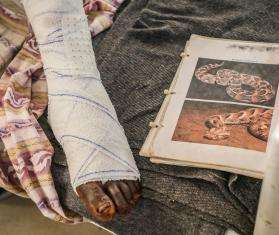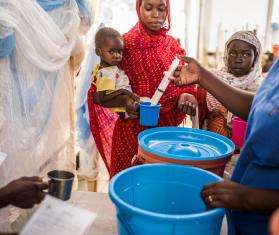A coordinated and rapid response is urgently needed in the decimated town of Koukou in Sila province, eastern Chad, as thousands of people have fled floodwaters, seeking refuge on high ground, with desperate shortages of food, shelter, drinking water and health care.
A Doctors Without Borders/Médecins Sans Frontières (MSF) team based in Sila has been helping authorities rescue survivors and is providing emergency health care.
Koukou and surrounding villages were hit by heavy rains in early August. Wadi Bahr Azoum, a seasonal riverbed that is dry part of the year and runs alongside the town, overflowed on August 5, causing a large part of Koukou to flood on August 6.
By August 7, according to one estimate, “at least 40 people died and more than 112,413 people have been affected by flooding in 13 provinces, including 71,000 in Sila.”
On Friday, August 9, the water rose again, but this time much more intensely, resulting in flooding that people have described as unprecedented in living memory. The entire town was devastated as the waters wreaked havoc on people in Koukou and surrounding villages.
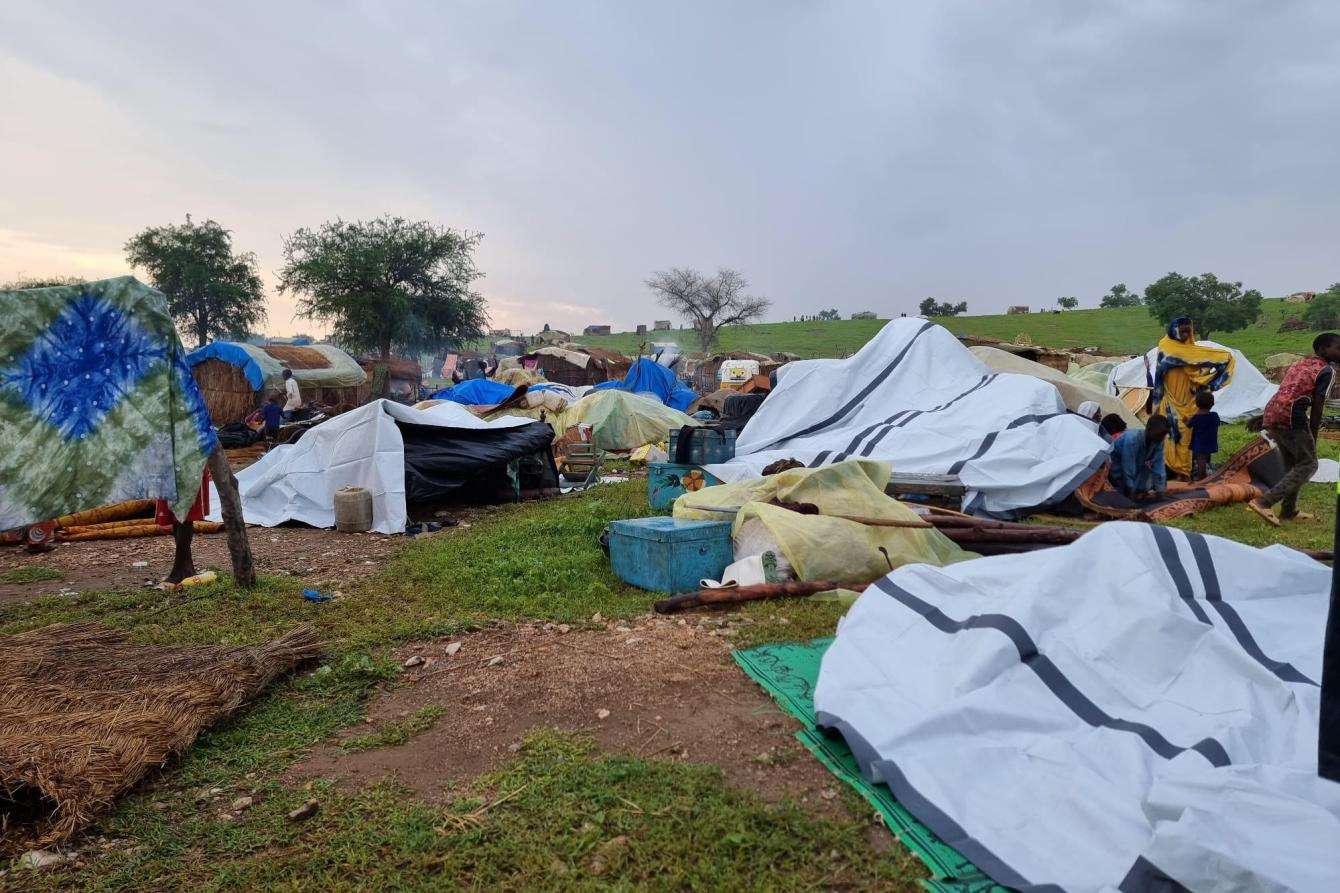
The surge of water left no time to flee
“The water came in a huge surge, with high speed, high force,” says Julie Melichar, MSF Sila project coordinator. “In places, people could not walk anymore—they had to swim.”
Melichar adds, “We saw people fleeing, panicking that they could not make it out in time. We could hear houses collapsing all around us. We saw people looking at their homes being destroyed in front of them. Thousands and thousands of people moved from the town to the hill to seek refuge. They tried to take whatever they could with them, but it was very little.”
Many people have lost everything, trapped on a hill without clean drinking water, food, or shelter. MSF teams report that the thousands of people in the makeshift camp include many children, pregnant women, and elderly people.
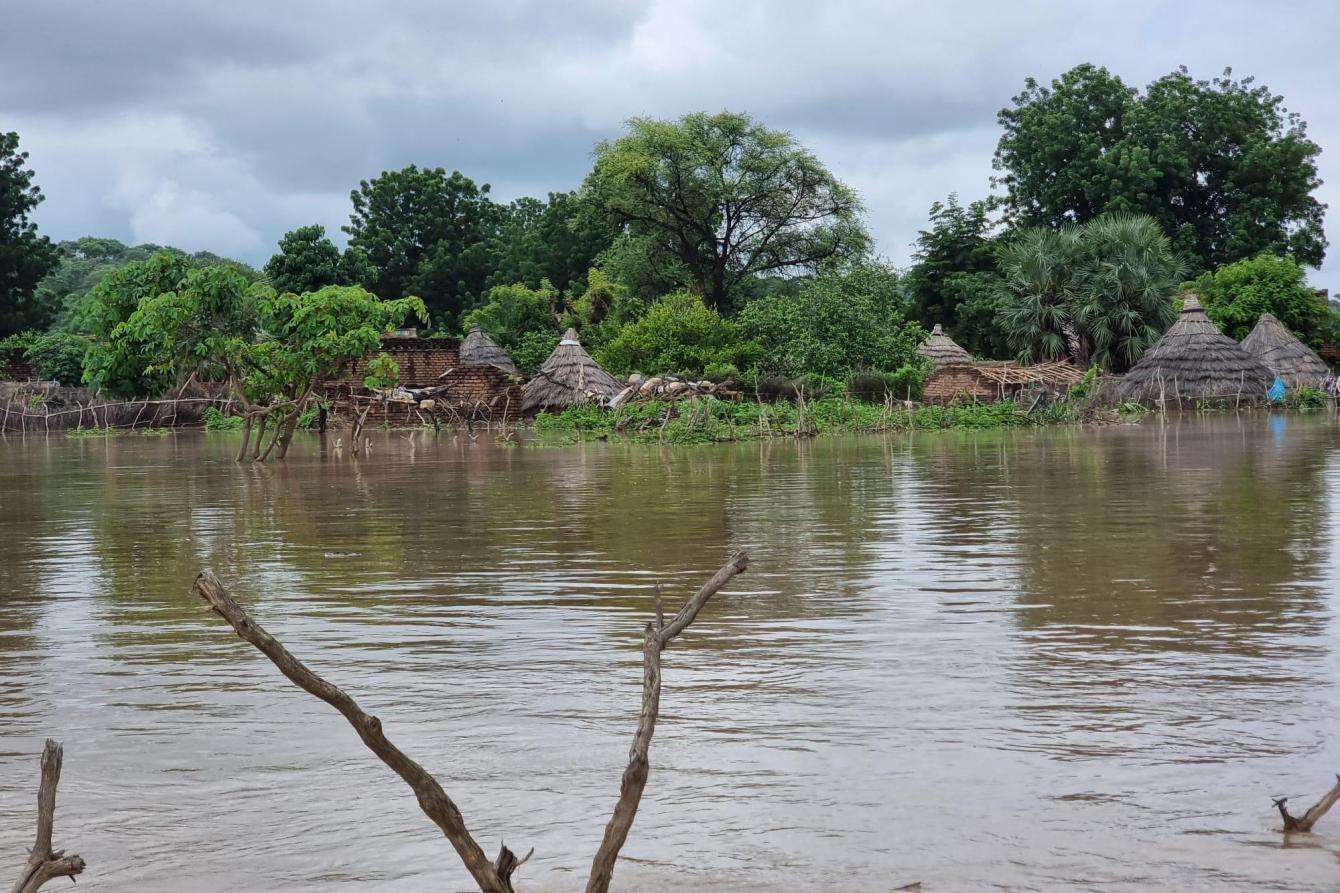
Floods contaminate drinking water and food supplies
Many wells are flooded and contaminated, with people forced to drink stagnant water. Food stocks have been destroyed in a place where there was already a food crisis before these tragic floods. People have little shelter from the rain and many have been victims of snakebites. The health center and hospital were flooded and the majority of medical stocks are ruined.
MSF is calling for humanitarian organizations to provide emergency assistance for people in Koukou and the region now, and to assess the needs in surrounding areas. Given the extent of the flooding, solutions must urgently be found to reach affected communities, bring supplies, and provide a rapid and coordinated response.
Food and shelter must be an immediate priority, as well as an effective water, sanitation, and hygiene response to reduce the risk of disease outbreaks. People may be trapped for some time, with the risk that the floods will rise again even higher.
MSF staff have been present in Sila for three years, working with the community to prevent and treat the most common health conditions, including malnutrition, malaria, respiratory diseases, and diarrhea.
All MSF staff and their families in Koukou are affected by this disaster while they are working to help their community. In an MSF boat, our teams and local authorities were able to rescue 296 people trapped by the waters.
Key concerns in Koukou
Food
While the current lean season was already plunging the population into a food crisis, many people have lost their food stocks as well as their means to buy it, as crops were devastated and prices have soared.
Shelter
While some households on the hill have mosquito nets and tarpaulins, many do not, so people are spending day and night in the open air.
Non-Food Items
there is a significant need for basic necessities (including tarpaulins, mosquito nets, blankets, and hygiene kits), although part of the population has managed to take some items such as kitchen utensils.
Water, sanitation and hygiene
In the city, latrines and septic tanks have collapsed, including at the hospital. There is a risk that the floods have polluted drinking water and the quantity of clean drinking water is insufficient. Only one water point is available at the foot of the hill and has a low flow. As a result, children can be seen fetching water in the valley. Almost all defecation is done in the open air.
Access to health care
The Koukou hospital and the health center were completely flooded and access to health care is now limited. Medicines and equipment were destroyed or washed away, and staff took refuge on the hill with their families. Even after the water receded from the buildings, they will still need to be cleaned and disinfected. On the hill, where the majority of people have taken refuge, there is no health facility except the mobile clinic MSF set up. The floods have not only affected the structures of Koukou town. According to information from the ministry, 12 health centers were flooded.
Without aid, “this natural disaster will become a humanitarian catastrophe”
“Colleagues were calling, telling us they were floating in their houses, asking us to send the boat,” says Melichar.
“People’s rafts capsized; they had to seek refuge in trees. All through the night until the morning, our boat was helping to rescue people.”
MSF has set up a mobile primary health clinic on the hill and is improving access to drinking water. But this disaster has occurred at the worst possible time, when both malaria and malnutrition rates are at their seasonal peaks.
“We’re treating malaria, acute watery diarrhea, and respiratory tract infections,” says Melichar. “We’re also extending the water system because right now people are drinking contaminated water. But people are facing shortages of everything you can imagine. “In this scenario I dread thinking what types of health problems can develop. Epidemics are a very real threat. We’re very worried. People in Koukou need humanitarian organizations to come to their aid, otherwise this natural disaster will become a humanitarian catastrophe.”

